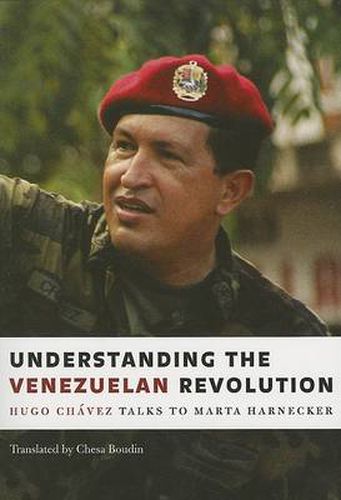Readings Newsletter
Become a Readings Member to make your shopping experience even easier.
Sign in or sign up for free!
You’re not far away from qualifying for FREE standard shipping within Australia
You’ve qualified for FREE standard shipping within Australia
The cart is loading…






Marta Harnecker’s interviews with Hugo Chavez began soon after one of the most dramatic moments of Chavez’s presidency–the failed coup of April 2002, which ended with Chavez restored to power by a massive popular movement of protest and resistance. In the aftermath of the failed coup, Chavez talks to Harnecker about the formation of his political ideas, his aspirations for Venezuela, its domestic and international policies, problems of political organization, relations with social movements in other countries, and more, constantly relating these to concrete events and to strategies for change. The exchange between Harnecker and Chavez–sometimes reflective, sometimes anecdotal, always characterized by their passionate commitment to the struggles of the oppressed–brings to light the process of thought and action behind the public pronouncements and policies of state. The interviews are supplemented by extracts from Chavez’s most recent pronouncements on the ongoing transformation in Venezuela and Latin America, an analysis by Harnecker of the role of the military, and a chronology. Chavez has become a symbol of defiance of U.S. imperialism throughout Latin America. His importance for the future of the region makes this book essential reading.
$9.00 standard shipping within Australia
FREE standard shipping within Australia for orders over $100.00
Express & International shipping calculated at checkout
Marta Harnecker’s interviews with Hugo Chavez began soon after one of the most dramatic moments of Chavez’s presidency–the failed coup of April 2002, which ended with Chavez restored to power by a massive popular movement of protest and resistance. In the aftermath of the failed coup, Chavez talks to Harnecker about the formation of his political ideas, his aspirations for Venezuela, its domestic and international policies, problems of political organization, relations with social movements in other countries, and more, constantly relating these to concrete events and to strategies for change. The exchange between Harnecker and Chavez–sometimes reflective, sometimes anecdotal, always characterized by their passionate commitment to the struggles of the oppressed–brings to light the process of thought and action behind the public pronouncements and policies of state. The interviews are supplemented by extracts from Chavez’s most recent pronouncements on the ongoing transformation in Venezuela and Latin America, an analysis by Harnecker of the role of the military, and a chronology. Chavez has become a symbol of defiance of U.S. imperialism throughout Latin America. His importance for the future of the region makes this book essential reading.